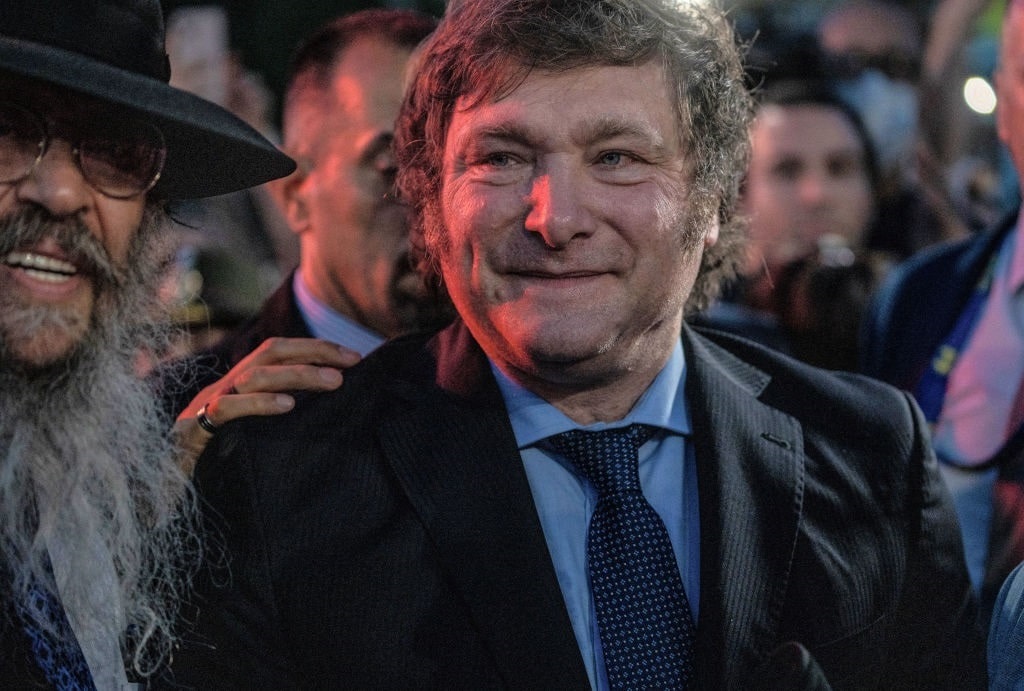Anti-establishment advocates around the world hailed the victory of self-described “anarcho-capitalist” Javier Milei in Argentina’s presidential runoff on Nov. 19. Milei ran on a central message of pending economic disaster. He openly mocked leftist policies he excoriated as tyrannical and communist. To the delight of his backers, he prominently included the internationalist climate-change agenda as part of this verbal assault. “All these politicians who blame the human race for climate change are fake and are only looking to raise money to finance socialist bums who write fourth-rate newspapers,” Milei had thundered. Then he was elected.
“Argentina under incoming President Javier Milei will remain part of the Paris Agreement on climate change, the country’s new top climate diplomat [Marcia Levaggi] told Reuters on Sunday, despite the leader’s past comments that global warming is a hoax,” the wire service reported Dec. 10.
“This is why I came to this COP, to reassure our party stakeholders and people following the process that Argentina will stay committed to the Paris Agreement,” Levaggi declared at the UN COP28 climate talks in Dubai. “We will honor all our environmental agreements.”
Liberal Milei
She went on: “Milei is a liberal, he’s a libertarian, and he believes in market forces. And the market demands to include measures to address climate change.”
What makes Milei’s abrupt about-face even more galling to his Argentine supporters is that he has entered office telling the country to brace itself for painful austerity measures as he deals with the financial mess he has inherited.

Javier Milei (Photo by Guido Piotrkowski/picture alliance via Getty Images)
On Dec. 11, Argentina devalued its currency by 50%. “Argentina is suffering 143% annual inflation, its currency has plunged, and four in 10 Argentines are impoverished,” CBS News reported. “The nation has also a yawning fiscal deficit, a trade deficit of $43 billion, plus a daunting $45 billion debt to the International Monetary Fund, with $10.6 billion due to the multilateral and private creditors by April.”
“If we continue as we are, we are inevitably heading towards hyperinflation,” Economy Minister Luis Caputo said in a televised message to the nation. “Our mission is to avoid a catastrophe.”
As part of his program, Milei has also vowed to substantially reduce the social welfare net so familiar to South American countries. All in the name of dealing with the harsh economic crisis. But the climate-change spending must go on.
‘This Is Super Pragmatic Behavior’
Milei’s embrace of that which he so recently abhorred is reminiscent of events in Italy. Giorgia Meloni was elected prime minister in September 2022 by constantly speaking out against massive unchecked immigration, which she termed a threat to the country’s survival.
As with Milei, Meloni’s populist appeal earned her the “far-right” label affixed to anyone who stands against the ruling progressive establishment status quo. Meloni was castigated as the one who could singlehandedly bring fascism back to Italy. Then she was elected.
Over the summer, Meloni issued a broad and expansive legal migration decree. The new policy “estimates Italy needs 833,000 new migrants over the next three years to fill in the gap in its labor force. It opens the door to 452,000 workers over the same period to fill seasonal jobs in sectors like agriculture and tourism as well as long-term positions like plumbers, electricians, care workers and mechanics,” Politico Europe reported Aug. 30. Meloni had not even been in office one full year.
The European Swamp was quick to pin a new label on that totalitarian dress.
“This is a super pragmatic behavior,” Matteo Villa, “a migration expert at the ISPI think tank in Italy,” told the news site. “There has been a change in narrative.” Is it a case of lying to the people who voted for you? No, it is apparently sensible, realistic, practical.
And it works equally well on both sides of the Atlantic. “Madman or pragmatist? Milei’s sudden transformation has Argentines puzzled,” read the headline to a Dec. 17 article by British business newspaper Financial Times on Milei.
There’s a comfortable air to that P-word, isn’t there? Almost as if it was expected to happen.
“Milei the firebrand, surrounded only by his loyalists and playing to his aggrieved base, would not have lasted a month in office,” Benjamin Gedan, “director of the Argentina Project” at globalist DC think tank the Wilson Center, told Agence France-Presse in a Dec. 9 article. “Milei 2.0 will still face an uphill climb, but he appears to have adopted a more pragmatic agenda and sought the advice of more experienced political figures.”
Milei 2.0? He was voted in just a couple of weeks before this statement was made.
The game plan is unmistakable. Populism is to be considered a blank check for flagrant deceit of the electorate in the eyes of a ruling elite that believes it still holds all the cards.
She “talks tough on immigration, and for those ingesting quick soundbites, many may not be fully aware of the true state of affairs in Italy,” rightist Hungarian site Remix News wrote of Meloni in August. “This has kept her popular with low-information conservatives while at the same time protecting her from the wrath of Brussels and the liberal establishment in Europe, which have made various threats in the past if she should step out of line.”
This formula is now being played to the hilt in populist nationalist circles.
As Argentina heads into a wrenching period of stark financial austerity, its new “gonzo” president is about to do something quite customary for politicians in his position. Milei will be flying to Davos in January as a featured speaker at the 2024 World Economic Forum annual conference.

